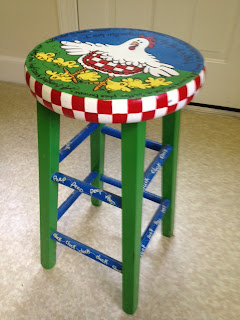-------------------------------------------------------------------------------------------------------------------------------------------
It’s been three years since I first walked into that office and started work. I’d quickly moved out and rearranged the furniture, set-up my files, and hung sixteen framed pieces of artwork that made me happy to look at every day. I’d made the space my own, fulfilled the job requirements, and for the most part, satisfied the people I was working for.
Our kids are just about to graduate from college having successfully completed their studies at their fine academic institutions and are moving on to the next phase of their lives debt-free. I hadn't realized how unhappy and frustrated I was feeling, hadn't focused on the simmering rage at the daily bombardment of academic jargon meant to exclude and not welcome in the “other.” For all their talk and research and investigation into acknowledging, naming and decrying the plight of the “other” how did they not see the “other” they’d made me? Relegated to being “staff” my existence, my worth had diminished in their eyes — and mine.
Why had I spent all these months and years catering to a group of cloistered beings who lived privileged lives talking and writing about the less-privileged? What stock was there in this universe of PhDs, JDs, EdDs and others whose only purpose was to create more of their kind?
Now that the college bills are paid, all of a sudden the office doesn't seem so grand anymore.
----------------------------------------------------------I wrote how I felt in 2003-------------------------------------------------------
The Hidden -ism
No D.Phil, Ph.D,
J.D, Ed.D,
M.D or even M.S.W.
No way to document
street smarts,
business savvy, or
classroom-teacher bravado
with a series of alpha entries after my name.
Always feeling that my best
just won’t be good enough
to the man in charge
to the powers that be
merely a résumé and never a CV.
Not in my office
but in spaces across the campus manner
my presence (Casper-the-Ghost at some tables)
frequently dismissed,
sometimes discounted,
even disdained.
Forever relegated
to be a second-class citizen,
third-class citizen,
fourth-class citizen
in the hallowed halls of academe.
When did higher education
equate to better than
you and you — and me?










